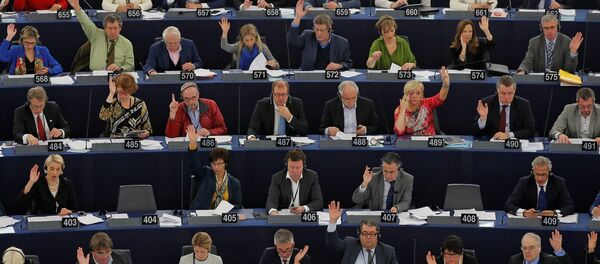The study, published by the Public Affairs Council, surveyed a pool of organizations ranging from global enterprises to small and medium-sized businesses. It showed 61% of companies base their public affairs office in Belgium or employ lobbying firms based in Brussels, expressly to make direct lobbying of EU institutions easier. Of the companies surveyed, only 16% companies actually base their headquarters in Belgium.
Who’s #lobbying the @EU_Commission and how much are they spending? Check #integritywatch #transparency https://t.co/mburvFoweF #lobby
— alessio samele (@alessio_88) January 9, 2017
The 61% who professed to lobbying the EU, on average, said a quarter of the budget goes on hiring contractors to promote their interests, primarily via trade associations and interest groups.
Chief executives of these businesses are often directly involved in lobbying the EU, with 20% of CEOs having "extensive" involvement in European government activities and 66% having involvement to "some extent."
While the report concludes this high level of interaction between lobbyists and EU politicians is a positive industry development, others are concerned about the extent of corporate influence in the EU and the "lax" rules governing lobbyist behavior.
A spokesperson for Transparency International (TI) told Sputnik that the ease with which lobbyists can access key EU institutions means businesses and special interests can easily influence lawmakers and legislation, producing laws that "put profits before people."
"In the EU, lobbying often takes place behind closed doors, totally removed from public scrutiny. Moreover, there is little ethical guidance for lobbyists, and rules governing how decision makers can be lobbied. When assessed against international standards and emerging best practice, the three EU institutions score a woeful 36 percent on average. Of the trio, the Council performs the worst, in large part due to it not covered by the EU Transparency Register. The Register should be made mandatory, with meaningful sanctions in place for breaches of lobbying and transparency rules," a TI spokesperson told Sputnik.
On top of these shortcomings, TI are also extremely concerned about the "revolving door" that allows individuals to move freely between the public and private sectors in the EU, potentially creating unfair advantages for and offering undue influence to businesses and special.
What's the truth behind the image of the corrupt elite? https://t.co/1G5rXiEHZu pic.twitter.com/9xYnEfxpE7
— Transparency Int. EU (@TI_EU) November 18, 2016
"Only when lobbying in the EU-level is done in a clean, transparent and fair manner, can citizens know what interests are behind the legislation that affects their daily lives, safety and well-being," TI added.



